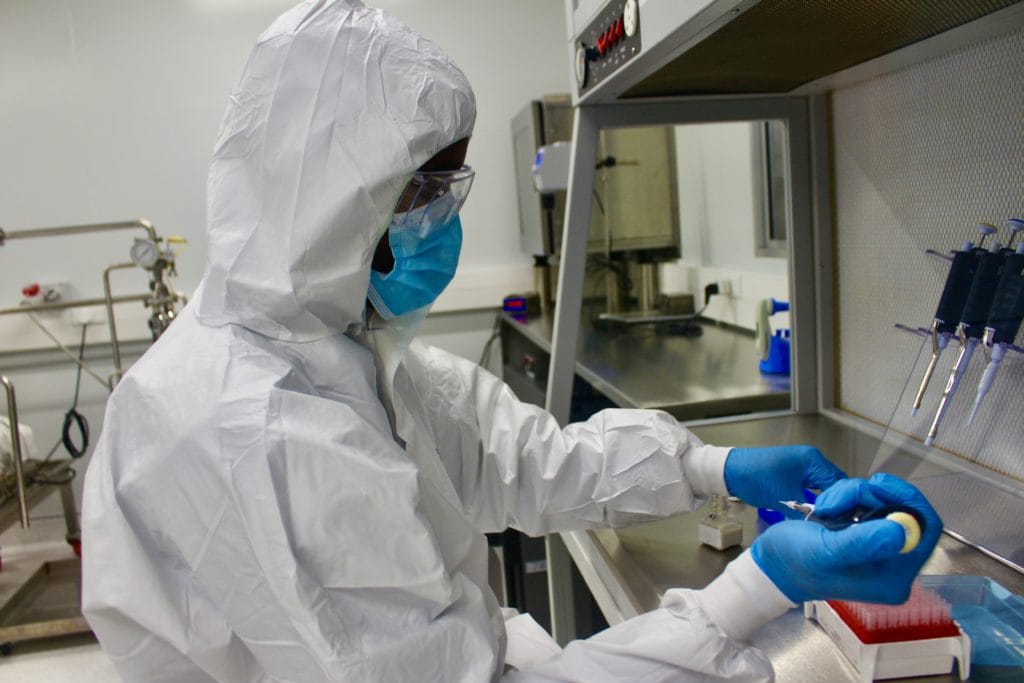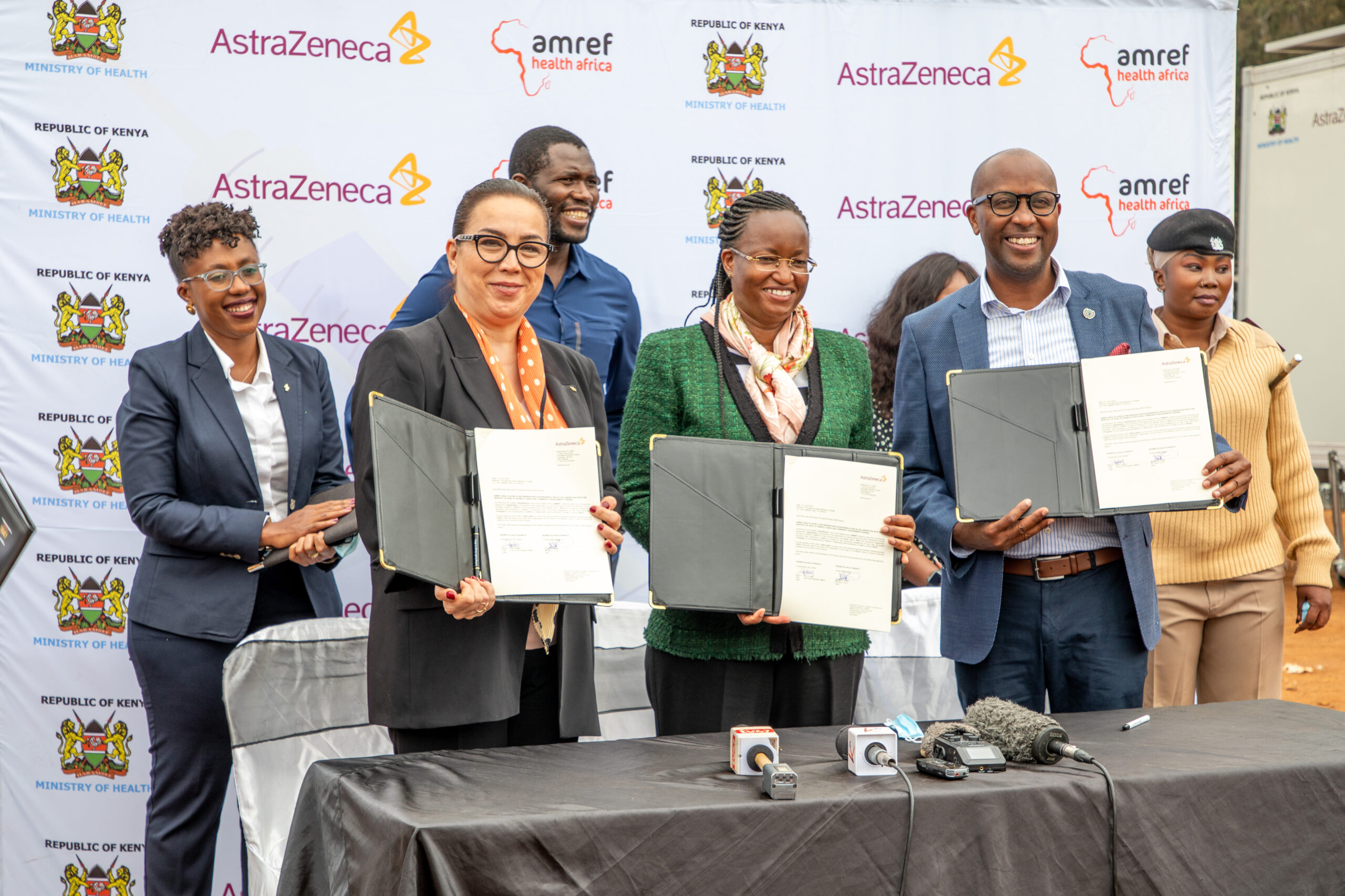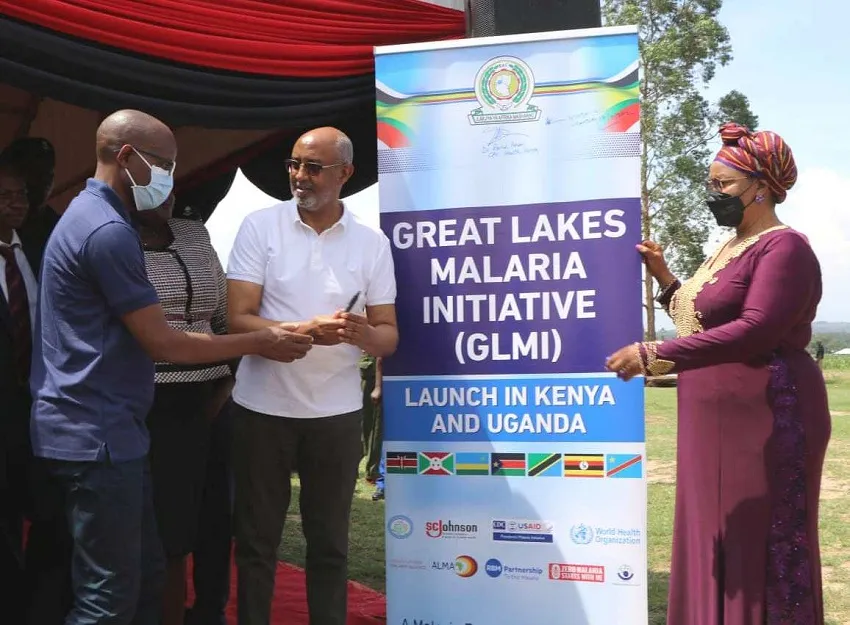ARP Graduation at Lenkisem….
Wednesday, 7 February, 2018

I wonder if after a while you become immune to your surroundings and stop noticing things around you. That’s how I was starting to feel and thinking I had nothing interesting to write about. Then, last week, I went on my first field trip to Kajiado county to an Alternative Rite of Passage (ARP) graduation ceremony at Lenkisem sub-location Oloitokitok. As well as ARP, I was fortunate enough to see the Water and Sanitation Hygiene (WASH) project in action, which goes hand in hand with ARP. WASH will be covered in Part 2 of this blog…….
It is true today as it was 60 years ago that Amref Health Africa reaches parts of the country where other NGOs don’t always go…… Another thing about this field trip, if you like car rallying, then you would have loved this trip but I won’t speak about that here. Suffice it say that it was an interesting and a memorable trip in more ways than one!
What is FGM/C, I hear you say and why ARP? In some communities in Kenya and other parts of Africa and the world, female circumcision or ‘the cut’ or ‘FGM’ (female genital mutilation) is a common ritual practice associated with transition from a girl’s childhood to adulthood and early marriage. The prevalence rate in Kenya is over 20%. The practice kills many girls as a result of bleeding, infections and later complications during birth. Sometimes girls can be as young as 9/10yrs old when they undergo this ‘ceremony’. There are increasing attempts to replace FGM/C with ARP approach which retains and preserves the good cultural values such as sexuality education, blessings by the elders and keeping girls in schools longer whilst taking away the horrific cutting exercise.
Amref Health Africa in partnership with ‘Kajiado county and other powerful groups have been leading the way to end FGM. They have been working with the local communities to educate on women’s health and to promote ARP without ‘FGM’ and to empower the girls to have a voice to follow their dreams. The vision is to end FGM/C by 2030. To date, around 14,000 girls have graduated under ARP.

The ARP graduation ceremony in Lenkisem included students from around 10 villages in the county involving more than 400 girls and about 13 boys. To qualify for the ARP ceremony, the students had to have completed their training on FGM and reproductive health as well as training on human rights. It’s important to ensure that the boys as well as the girls receive this training to ensure gender equality and for boys to not feel left out.
Day before the ARP ceremony:
Here we see Shiluni, ARP Champion, speaking to her fellow class mates about FGM. Afterwards, I asked her what she’d like to be when she grows up and without hesitation, she said “I’d like to be a lawyer or something similar.” She certainly seemed to have the confidence to speak in public.
The night before the ARP ceremony, the school held a dance and cat-walk competition which was attended by the parents and other visitors including Amref staff. The girls were asked random questions on the merits of ARP, the consequences of FGM and about Amref. I must say, the girls all answered the questions with confidence. (Unfortunately, my pictures from this wonderful evening didn’t come out so well).
The next day, the ceremony was attended by the parents, village elders, county governor, CEO of ‘WomenDeliver’, Amref staff (programme lead and other Amref staff from the Canadian and Dutch offices as well as Amref field staff) and other distinguished guests including the press (New York Times).
Day of the ceremony: Girls dressed in their graduation attire.
Below: ’Nice’ an Amref field worker on the ARP programme (yes, her name really is Nice and she really was very nice, very committed to the cause), dressed in her local costume for the occasion.
Village elders and parents attending the ARP ceremony.
The ceremony seemed to start with the widows singing/chanting: Quote ‘we widows have thrown away all traditions of FGM – so say “no” to FGM’.
Throughout the ceremony, there were other such powerful speeches from the young girls themselves. Some of the quotes that resonated with me include: “it’s not shameful or cowardice to refuse FGM”.
To the elders and parents they said “It’s not that I’m refusing you, or disobeying you but it’s the law to say ‘No to FGM. Thank you to Amref and the government to help/support the girls to say No to FGM”.
(the above translations of quotes were provided to me by a kind massai gentleman).
Sien receiving her graduation certificate from Katja Iversen, CEO of WomenDeliver.
Some of the other girls proudly presenting their graduation certificates. 
The day ended with lunch outside in the open provided by the local community. The funny thing was that the weather remained nice and sunny throughout the proceedings but it started to rain as soon as the lunch was being served……God must have been smiling on these girls.
(This article was first published HERE, on 18 December 2017 by Narinder Lotay. Narinder is a Clinical Research Manager at GlaxoSmithKilne (GSK)).








Comments
[…] as many other agencies focusing on fistula, such as the Fistula Foundation, UNFPA, EngenderHealth, AMREF, Norwegian Red Cross and many others, there are currently 52 FIGO Fellows –trainee fistula […]
[…] tan solo tenía 8 años se negó a que le practicaran la ablación y convenció a su abuelo, un anciano masái, argumentado que esta práctica también implicaba dejar de ir a la escuela. […]
[…] there is a need to provide appropriate training, supervision and remuneration for community health workers to enable them to tackle existing and emerging health challenges, such as non-communicable diseases, […]
[…] of school-going children. Katembu was also leading a delegation to take stock of progress made by Amref Health Africa’s Maternal and Child Nutrition Project, which was launched in May 2016. Katembu noted that the project has helped to improve maternal, […]
[…] Health Africa Group CEO, Dr Githinji Gitahi who is also the current co-chair of UHC2030, noted that “UHC is a human right that ensures the people’s constitutional right is obeyed, […]
[…] to change this are ongoing and a campaign was launched at the Africa Health Agenda International Conference in Nairobi last year that […]
[…] in Kenya. Nice Leng’ete, who escaped the cut when she was 8-years-old, has earned global acclaim, including a feature story in the New York Times, because of her community-led approach to ending […]
[…] ALSO READ: Leap, the mHealth platform and i-PUSH […]
[…] post Second Innovate for Life Fund Accelerator week appeared first on Amref Health […]
[…] post Amref receives Ksh 4.6 billion grant to fight TB and malaria in Kenya appeared first on Amref Health […]
[…] post Christmas in Dagoretti Child Protection and Development Centre appeared first on Amref Health […]